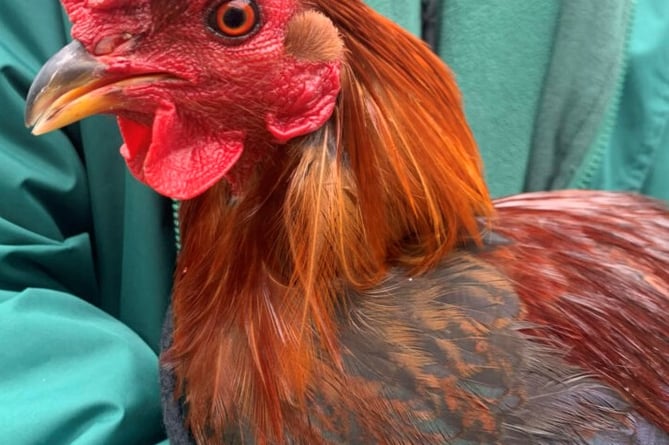With food prices on the increase, and uncertainties over supplies, keeping hens and having a ready supply of eggs has never been more popular.
Keeping hens is rewarding and entertaining for adults and children alike, and well looked after birds will produce a regular supply of flavour-packed, fresh eggs.
But having a small flock in your back garden is not as straightforward as it may seem.
The birds need daily care and expert husbandry, and they can’t be left to fend for themselves – not even for a couple of days. If you’re seriously thinking about getting some hens, please make sure you’ll have the time and energy to care for them properly.
The British Hen Welfare Trust has an excellent website that gives lots of advice to anyone who may be considering hen keeping.
The hen coop can be a purpose-built shelter or a re-purposed garden shed with added nest boxes and perches. It needs to be suitably sized, with a large outdoor area that is fenced off and secure.
The island’s pole cats are experts at finding ways into hen coops – either through tiny gaps in doors or vents, or by digging underneath the coop.
Hens will destroy neat flower beds and lawns with their digging, scratching and mud bathing, and so if you have a well-manicured garden you may wish to think again about hen ownership.
And hens need a fresh, daily supply of specialist poultry grain, alongside clean water, to supplement the seeds and insects that they find in the garden.
The most important part of their daily regime is their bedtime, when they need to be locked safely in their coop to protect them from predators.
Protecting birds from external threats took another turn recently: this winter’s avian influenza scare resulted in the DEFA warning all poultry keepers to isolate their birds from wild birds, and to have the capacity to feed them separately and contain them in a run.
The coop and run require daily ‘poo-picking’, and a thorough deep clean every couple of weeks to deter red mites and infectious diseases such as salmonella.
You will be surprised just how much poo hens can produce!
Observing your flock on a daily basis is hugely enjoyable because hens are so active and engaging, but it’s also important because you can spot any illness in the flock or irregular behaviour.
The pecking order sometime means that birds at the bottom are bullied and feather-pecked (or worse), and kept away from food.
The bully needs to be removed to a separate area for a period of time in the hope that the pecking order ‘re-sets’ itself.
If you are introducing a new hen to the flock, the best time to do this is in the evening when they are about to settle down for the night.
If your flock contains a cockerel, please be sure to collect all the eggs laid by the hens so that fertile ones don’t lead to chicks – cute and fluffy they may be, but 50% will be boys. Unwanted cockerels are a huge issue on the island and the ManxSPCA simply can’t find new homes for them.
Many are simply dumped by unscrupulous owners and left to fend for themselves.
If you have problem cockerels visiting your garden, our best advice is to deter them humanely. Sprinkling pepper on the soil and leaving orange peel in the areas they seem to favour may help.
Purchasing organic, free-range eggs from a shop may simply be the best and easiest alternative to owning your own hens.
But did you know that eating white eggs is also a way of ensuring that the birds’ welfare is prioritised?
This is because white eggs are generally produced by white feathered hens, and brown eggs by brown feathered ones; and white birds are usually more docile.
This means that there is less need to trim their beaks because they are not as prone to pecking at each other.
We always have cockerels looking for new homes – boys like Harry who are friendly towards humans and good fun to have around, but they are noisy and need to live where they won’t annoy neighbours.




